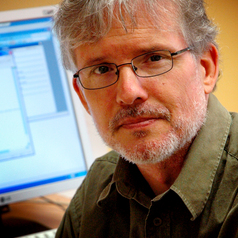Written by Caroline Hodge
originally posted on April 24, 2014 at ecoaffect.org, where Caroline posted daily blog posts

Climate skepticism continues to bewilder many stakeholders working on climate solutions. Why do skeptics believe what they do? And what’s the best way to engage with them? In a recent piece in The Conversation, cognitive scientist Stephan Lewandosky answered questions submitted on Reddit about conspiracy theories, climate denial, and public reactions to science. What’s most notable in the piece is Lewandosky’s discussion of how solutions are ironically what drive much of the opposition to the science of climate change. As Lewandosky puts it, many people deny the science because the regulation-focused solutions often proposed to solve the problem threaten their worldviews.
Climate advocates can overcome this persistent barrier by presenting a range of solutions that appease both conservative and liberal ideologies. For more tips on how to successfully engage with a range of Americans on climate change, check out ecoAmerica‘s climate communications guide: Communicating on Climate: 13 Steps and Guiding Principles.
From Conspiracy Theories to Climate Change Denial, A Cognitive Psychologist Explains
Stephan Lewandowsky, Chair of Cognitive Psychology at the University of Bristol and Contributor to The Conversation
Conspiracy Theories
Under what conditions do conspiracies spread? What can one do to convince people to be more sceptical of extraordinary claims in conspiracy theories?
In societies that are not transparent and less democratic, conspiracy theories flourish because the government cannot be trusted. In general, the people who believe in conspiracy theories are low on trust and feel that they have been treated badly by life or society.
Countering this is very difficult, but education and reducing inequality will go a long way.
Can you name one conspiracy theory that turned out to be true?
The tobacco industry is now known to have “conspired” against the public in their efforts to undermine the well-established scientific evidence linking smoking to ill health. One of the US judges famously said: “The US tobacco industry has engaged in a criminal conspiracy for more than 50 years.”
Caroline is an Associate Manager of Communications & Research at ecoAmerica, a nonprofit working to build mainstream support for climate solutions in the United States. She graduated from Stanford University with degrees in Psychology and Philosophy & Religious Studies in 2013. Caroline attended a C2C Fellows workshop at UC Berkeley in 2013.


